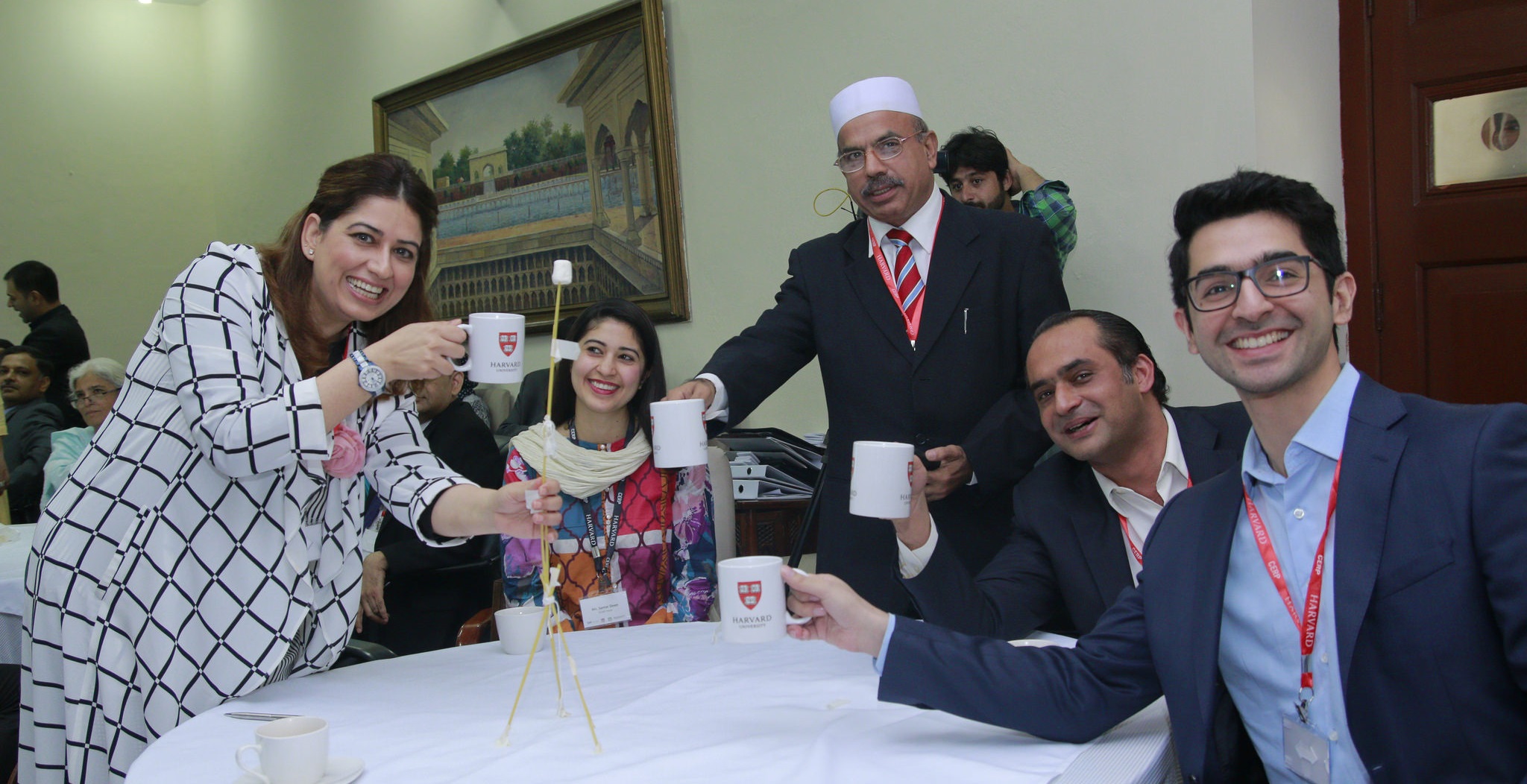Innovative Leadership in the Age of Data (ILEAD)

From August 3-5, 2016, Evidence for Policy Design and the Center for Economic Research in Pakistan hosted the inaugural Innovative Leadership in the Age of Data (ILEAD) course for top leaders from the public and private sectors in Pakistan – a group that included members of parliament, top civil servants, CEOs, nonprofit leaders, and military generals. The course, part of the Building Capacity to Use Research Evidence (BCURE) program, was the first of its kind in Pakistan. Course content focused less on technical skills in the use of big data (though there was some of that) and more on envisioning and leading a data-savvy organization of any kind.
EPoD faculty co-directors Asim Khwaja and Rema Hanna, along with faculty from Princeton, London School of Economics, and Lahore University of Management Sciences, led participants through collaborative problem solving, current-issue talks, case studies, digital blended learning modules…and at one point, the construction of towers using only spaghetti, tape, and a marshmallow. The curriculum challenged notions of what it means to be a “smart” organization, guiding participants through stages of viewing their organizations as brains embedded in a nervous system – first receptive, and then analytical, and finally able to learn.
Faculty introduced EPoD’s Smart Policy Design and Implementation framework early in the course and participants worked in small mixed-sector groups to apply elements of this approach to Pakistan-specific problems. Groups pitched their proposed solutions on the final day of the course, with structured time for colleagues to ask questions and offer constructive feedback.
Khwaja said that ILEAD was unique, not only in its approach but in the level of participants it attracted. “These were all people who are hitting the same policy questions but from different perspectives. In the US this kind of group might have been brought together by think tanks, or perhaps universities. But in Pakistan there are few such fora.”
He went on to say that it would have been difficult to bring a group of leaders around a substantive topic because they came from such different spheres and different ideological perspectives. However, bringing them together in the “language of data” had a bridging effect, and they were able to learn from each other while discussing their organizations in structural terms.
Khwaja says future versions of ILEAD might move beyond organizational dynamics and the uses of big data, and toward those substantive issues facing Pakistani society. The reaction among participants to this inaugural session was unanimously positive, which suggests potential for ILEAD to serve as a new forum for building consensus using hard evidence in a country that faces numerous challenges at all levels, including the top.






